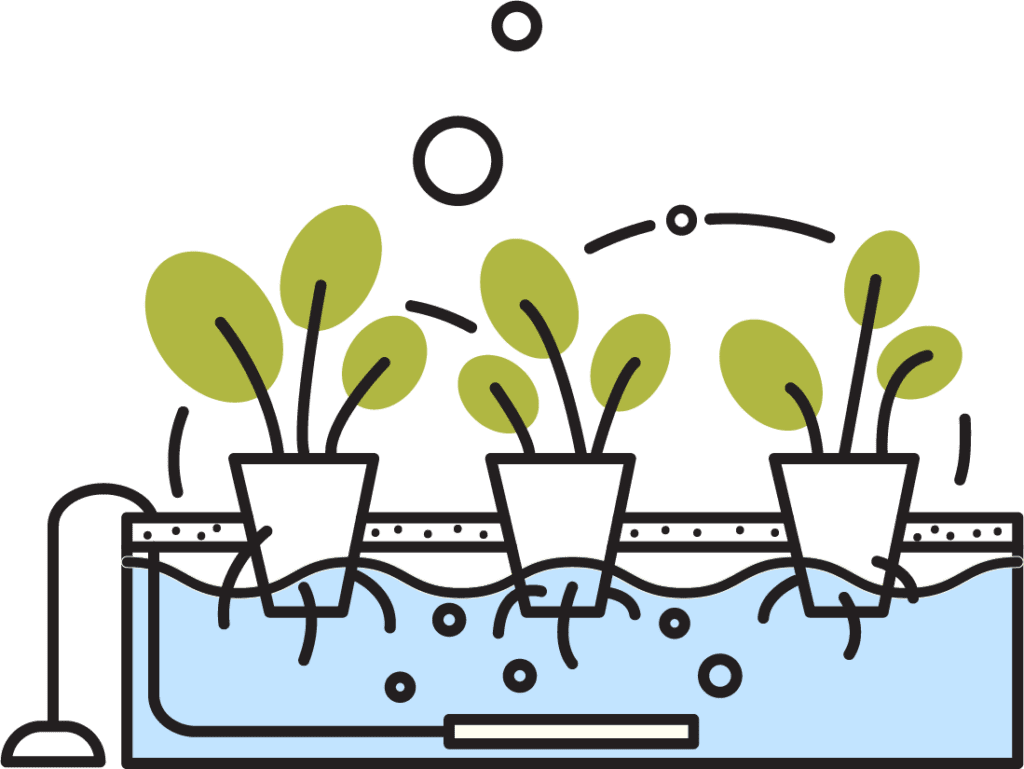Have you ever heard of houseplants that can grow and thrive in water? Instead of traditional soil-based plants, these hydroponic plants can absorb essential nutrients through submerged roots. These plants are known as hydroponic plants and are becoming increasingly popular among enthusiasts. These plants can thrive and flourish in water with the right conditions and care. The surge in popularity of water-grown houseplants among plant enthusiasts must be addressed. This growing trend has captivated the hearts of many gardening enthusiasts seeking a new and exciting way to nurture their plants.
One of the benefits of hydroponic plants is their low maintenance. Since they don't require soil, there is no need to worry about soil-borne pests or diseases. Additionally, hydroponic plants can be grown in various containers, such as glass jars or vases, adding a unique and decorative touch to your space. Hydroponic plants are perfect for those who want to add a touch of greenery to their homes but need more room or want to avoid dealing with soil mess. Most hydroponic plants require minimum maintenance and are easy to care for. This means you can create a beautiful and unique display that will add personality to your home. All you need is a container filled with water and the right amount of sunlight, and you're good to go!
Some popular hydroponic plants include pothos, spider plants, Chinese evergreens, peace lilies, and lucky bamboo. These plants are easy to care for and have air-purifying qualities, making them an excellent choice for improving indoor air quality. They can add beauty and freshness to any room in your home and give you the desired tropical aesthetic. The transparent containers for hydroponic cultivation allow you to observe these plants' intricate and beautiful root systems, creating a mesmerizing visual display. Whether you grow leafy green plants or vibrant flowering varieties, their roots suspended in water become a centerpiece of intrigue and fascination. Water-grown houseplants add a touch of elegance to your indoor space and offer a conversation starter and an opportunity to appreciate the wonders of nature up close.
Growing houseplants in water also offer numerous benefits to your health and well-being. Hydroponic plants release more oxygen into the air, improving air quality and promoting better breathing. Additionally, they can reduce stress levels and boost moods, creating a calming and refreshing atmosphere in your living space. With hydroponics, you can bid farewell to the constant need for watering and the hassle of dealing with soil-dwelling pests. You can ensure optimal growth and health by providing a controlled environment for your plants. Additionally, water-grown houseplants offer a striking aesthetic appeal, showcasing the intricate root systems in transparent containers and providing a unique touch of greenery to any space.
One of the most significant advantages of growing houseplants in water is that it is a very low-maintenance option. You don't have to worry about soil, so you don't have to worry about pests, mold, or other issues that can arise from soil-based plants. Additionally, you don't have to worry about watering your plants regularly, as the water they are growing will provide them with all the moisture they need. This saves you time and minimizes the chances of plant damage due to fluctuations in moisture levels. With water as their foundation, these houseplants effortlessly thrive and add a touch of serenity to your home or office.
So, if you're looking for a low-maintenance and visually appealing way to bring some greenery into your home, consider adding some hydroponic plants to your collection. These plants have become an intriguing choice for individuals seeking a refreshing twist in their indoor gardening endeavors. Now that you know about these fantastic hydroponic plants, what are you waiting for? Go out and get yourself some green, water-grown friends!
Aquaponics Is Fascinating And Innovative
Hydroponic Gardening For Beginners
Is Hydroponic Gardening At Home For You?
Hydroponic Indoor Gardening for Beginners

:max_bytes(150000):strip_icc()/building-a-hydroponic-garden-5086086-hero-88d01a2d2a6e47f8a0bbe3d9994c8d98.jpg)